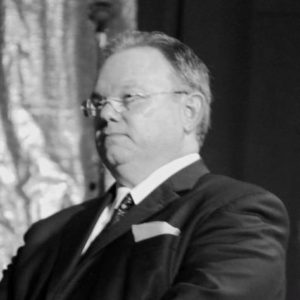“As worship leaders, we have the important and terrifying task of placing words of worship on people’s lips.”
After reading the above quote by John D. Witvliet, a leading worship theologian, I was convicted about the serious task of the worship planner and leader. As worship leaders, we have the important task of selecting the worship words that our congregations will use to worship the king of Kings! It happens every time we choose a song or worship chorus for our church service. We have the holy task of being good stewards of God’s Word. Although we may be skillful musicians, worship leaders, rehearsal directors, and worship planners, for holy tasks such as these, the church needs more than a musician, coordinator, or performer. “While we are not spiritual engineers, we do-with fear and trembling-take the part of priests, placing words of worship on people’s lips that may well resonate deep within their souls and draw them, by the Spirit’s power, closer to God’? How do we fulfill this high calling? We must be students of the Word.
I have been convicted of the importance for worship leaders to be students of the Word. Amos 5:21-27 is a scorching rebuke of Israel concerning their worship. God did not accept Israel’s worship because they offered acts of worship outside of the covenantal relationship as they lived in idolatry, immorality, and selfishness. God despised their feasts and told them to take away the noise of their songs. Too often we gather with the goal to feel something and
to elicit some sort of response. If our worship does not drive us to a more intense devotion to our God, then it is simply a self-absorbed activity that is not acceptable to the One who is supposed to be the subject and object of our worship.
So how does a leader select music for corporate worship? First, we must assume that not every song written is worthy to be sung. Just because it exists in a musical score or on a CD does not
mean it qualifies as good music for worship. Every song must be evaluated on its own merits. Second, the persons responsible for song selection are accountable to God for what they ask the church to sing. Plato once said, “Let me write the songs of a nation, and I care not who writes it laws:’ He knew the power of songs to shape and influence people. “Selecting song
texts, then, is one of the most significant things that worship architects do because they are shaping their congregation’s theology (and therefore worldview) by the texts they select.
It is an awesome responsibility”?
An effective philosophy or theology of worship must be built upon a foundation. As in the construction of a house, great care must be taken to make sure that its foundation is secure. In the day in which we live, there are a plethora of musical styles and many new voices trying to influence Christian worship. Through the din of the “worship” noise, let us never forget that true worship must have a sure foundation rooted in the Word of God.
Worship is about God and His desire to develop and deepen His relationship with His people. Holiness and preparation are the foundation for effective worship leading as is seen in II Chronicles 5. In John 4, Jesus encountered a woman who asked Him about the proper location
for worship. Jesus responded that location and style may change, but the value (which must never change) is in worshiping God “in spirit and in truth” (4:23). In John’s writings “truth”
is a word he often related to Jesus and the truth revealed by the Holy Spirit. John 1:17 states that “grace and truth came through Jesus Christ:’ The truth that is in Jesus will form the foundation on which worship styles are built. True worship does not depend on holy days and places but upon whether the worshiper is sincere and if Jesus Christ is the center of our worship.
1. John D. Witvliet, Worship Seeking Understanding: Windows Into Christian Practice (Grand Rapids: Baker Academic, 2003), 282.
2. Ibid., 282-283.
3. Constance M. Cherry, The Worship Architect: A Blueprint for Designing Culturally Relevant and Biblically Faithful Services (Grand Rapids: Baker Academic, 2010),182.
Lindel M. Anderson is dean of Worship Studies at Indiana Bible College.



